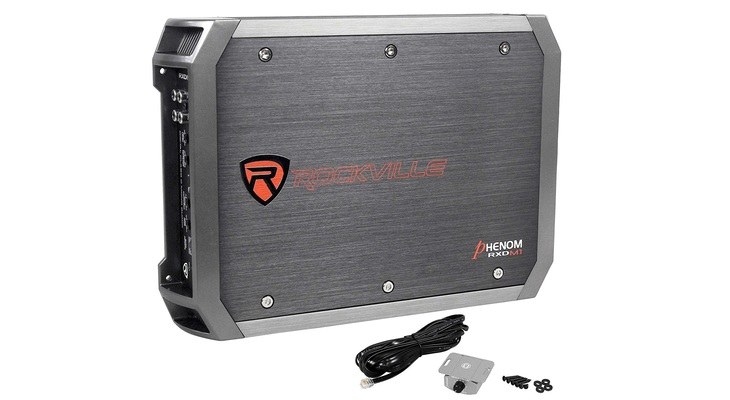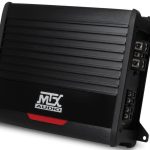Why does my amp keep blowing fuses? There’re several reasons why an amp may blow fuses. Some issues are simple to fix while others may require professional assistance. Essentially, a fuse is an important component in an amp. It works by providing overcurrent protection in an electric circuit. The fuse melts when excessive current flows through it, thereby stopping the flow of current.
While a bad amp fuse can blow on its own, it should concern you when your amp keeps blowing fuses. In this article, we’ll tell you the reasons why your amp is blowing fuses repeatedly and possible fixes. Luckily, it’s possible to find the root cause. Keep reading to find out more.
Reasons Why Your Amp Is Blowing Fuses
1. Mismatch in Impedance
If you feed the amp with an impedance load that it cannot handle, it’ll be forced to draw a higher amount of current than what it can deliver. As a result, it’ll overheat and shut down to protect itself from damage. Also, the fuse may blow to shut the amplifier before the excessive current damages the amp.
It’s important to ensure you don’t drive the amp beyond its impedance rating. For instance, if the amp has a stable impedance rating of 2 ohms, driving it beyond this rating may result in an impedance mismatch. Consequently, there will be higher chances of blowing the fuse.
2. Clipping
Amplifier clipping results in heat buildup. Clipping is usually a result of improper gain setting. For instance, adjusting the gain control while music is playing results in a decrease or increase in volume. Adjusting the gain properly reduces background noise, thereby preventing the amplifier from clipping.
However, some audiophiles use to gain control to adjust volume, which is not advisable. If you adjust to gain control with the aim of increasing volume, you’ll push the amp beyond its capability. As a result, there’ll be amplifier clipping. Consequently, the amp will overheat and blow the fuse with the aim of protecting itself from damage.
3. Reversed polarity
If you’ve wired your car amp recently and it has started blowing fuses now and then, it’s likely you didn’t get the polarities right. Reversing the polarity of the amplifier ground wiring or power can cause the fuse to blow. While some amps have a mechanism of reverse polarity protection, others don’t and will blow the fuse.
4. Wrong power cable gauge
The gauge of a power cable determines its resistance. If it’s too thin, it’ll resist electric current from flowing through. As a result, the amp won’t get sufficient power to drive the car speakers and subwoofer. Besides, it’ll overheat and shut down or blow the fuse to protect itself from worse damage. Thus, it’s important to use a thicker power cable to reduce resistance.
5. Faulty amplifier grounding
It’s very important to ground a car amp properly. If the grounding wire isn’t fully attached to the chassis or the grounding wire is faulty, there may be spikes that’ll result in a blown fuse. Check the grounding wire for any signs of damage or a loose connection. If the grounding wire is damaged, replace it with a new grounding wire. If loose, tighten the grounding connection.
6. Incorrect fuse size
Since a fuse is designed to protect the amp, it’s important to use the correct fuse size for your amp. In case the amp is smaller than the recommended size, it’s likely to blow. On the other hand, using an extremely bigger fuse than the recommended size will fail to protect your amp such that the amp itself may blow.
7. Problems with the speaker or speaker wiring
Another reason why your amp may keep blowing fuses is problems with the speakers connected to the amp or the speaker wiring. If the amp is especially blowing fuses when turning the volume up, it’s likely a speaker is blown or the speaker wiring is grounded to the car chassis. When this happens, the amp will still make attempts to power the speaker. Consequently, it’ll overheat and blow the fuse.
8. Shorted power cable between the amp and distribution block
If your amp is connected to a distribution block, and the fuses in the distribution block are blowing, it’s likely that the power cable feeding the amp from the distribution block is shorted. A shorted amplifier can also result in a blowing distribution block fuse. In this case, you’ll need to troubleshoot the root cause.
You can start by checking whether the power cable connecting the amp to the distribution block is faulty. If the cable has any cuts, it’s likely shorting and making the fuse blow. In that case, replace the cable. If the distribution block still blows fuses, it’s likely the amplifier has an internal problem.
9. Shorted power cable between the amp and car battery
If you don’t have a distribution block in your amp setup and the amp is connected directly to the car battery, it’s likely the fuse is blowing due to a shorted power cable. In this case, check the power cable connecting the amp directly to the car battery. If there’re any tears or damage on the cable insulation, replace it to fix the problem.
10. Faulty amp
In case your amp is still blowing fuses and the aforementioned issues are not the cause, you’re likely dealing with a faulty amp. Probably, the amp has a faulty power supply, shorted transistors, or even blown transistors. In this case, you’ll need the amplifier checked by a professional or do it yourself if you have the needed expertise.
Also Read: Why Does My Amp Keep Cutting Out
Conclusion
By following the above steps, you’ll get to know why your amp keeps blowing fuses. If you fix the possible causes and your amp is still blowing fuses, it’s likely your amp is faulty. In that case, a professional will need to check your amp for faults and possibly fix it to get it working again. Hopefully, you’ll be able to fix the issue in no time.
Michael Evanchuk is a San Francisco-based sound engineer with 20 years’ experience installing, troubleshooting, and repairing commercial, automotive, and household sound equipment. Evanchuk owns an auto stereo center, where he offers highly competitive car audio installation and repair services. He has written dozens of articles on different sound engineering topics, all of which have been published in leading journals, blogs, and websites.





